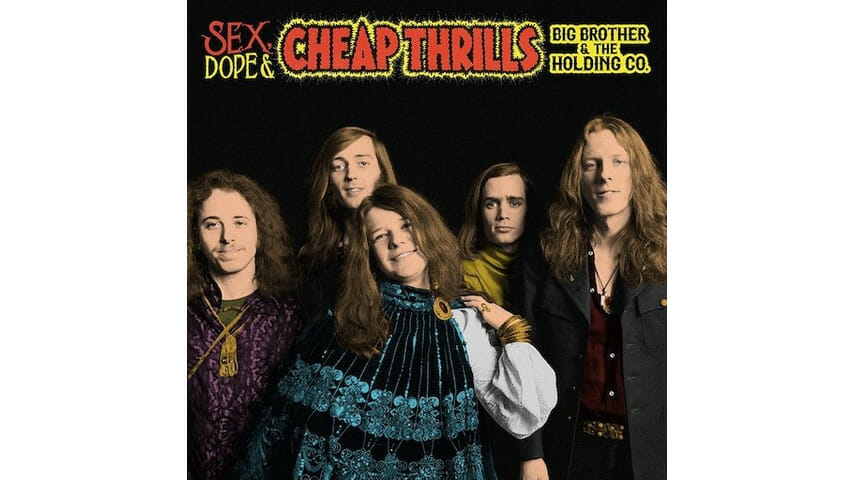Big Brother and the Holding Company: Sex, Dope & Cheap Thrills

It’s hard to imagine another sophomore album that not only made a powerful initial impression but at the same time, marked such a stunning farewell. At the time of its release, some 50 years ago, Cheap Thrills proved to be a bombshell and the breakout record for Big Brother’s dynamo of a lead singer, Janis Joplin. Though only seven songs long, it became Joplin’s ultimate tour de force, the standard by which she would be judged for the remainder of her brief career. It was also inevitable that it would also mark her final effort with the group, given the fact that her talent was simply too overwhelming to be contained within the confines of any single ensemble. Nevertheless, the record not only became one of the biggest selling albums of 1968, entrenched at number one for eight consecutive weeks, but a recording destined for immortality when, in 2013, it was enshrined in the National Recording Registry by the Library of Congress.
Now reissued as Sex, Dope & Cheap Thrills—the name the band had originally intended but which was ultimately rejected by Columbia, their record label—this sprawling reissue essentially rewrites history courtesy of a two disc set featuring 30 tracks, all but five of which are previously unreleased. That said, the original set list remain intact. They include the trio of standout songs that became the early essence of Joplin’s repertoire: “Summertime,” “Piece of My Heart” and “Ball and Chain.” It’s worth noting that the latter was the only actual concert recording, although it was assumed at the time that the entire album was live to begin with, thanks to Columbia’s insistence on adding crowd noises to enhance the overall ambiance. Here, that version of “Ball and Chain” is omitted in favor of another live performance, one recorded at the Winterland Ballroom the same month as the other.
Given the fact that every other entry on the album was worked up in the studio, the various early takes offer added intrigue. The order of the set list remains the same (a snippet of the discarded song “Harry” being the only additive added to the running order) but given these early unheard versions and the additional takes that take up much of disc two, the genesis of these performances clearly is clearly illuminated. Joplin’s initial stabs at “Piece of My Heart,” “Summertime” and “Turtle Blues” are reflected by multiple entries, each showing the singer becoming increasingly engaged and digging deeper even as her vocals overtake the band’s backing performances. She tugs on an emotional reserve reflected through the final takes, but her performances are clearly consistent even early on.
-

-

-

-

-

-

-

-

-

-

-

-

-

-

-

-

-

-

-

-

-

-

-

-

-

-

-

-

-

-

-

-

-

-

-

-

-

-

-

-








































